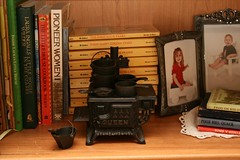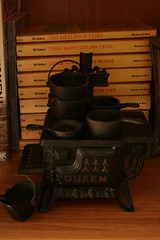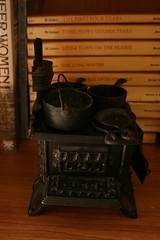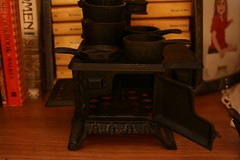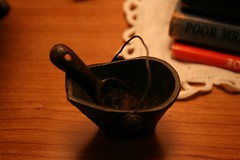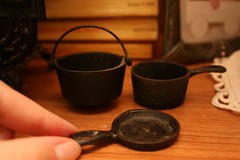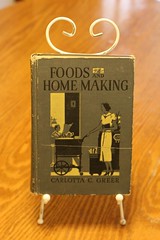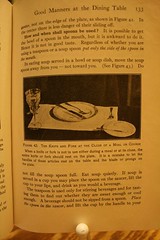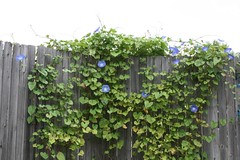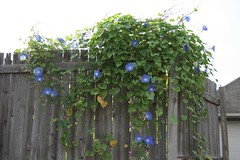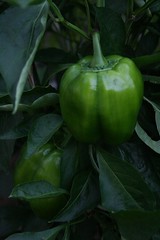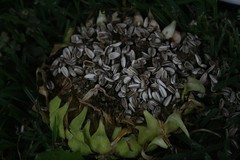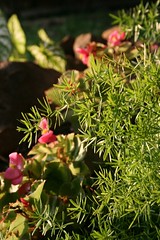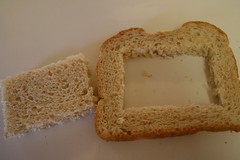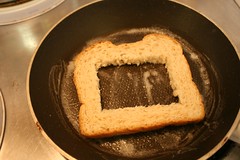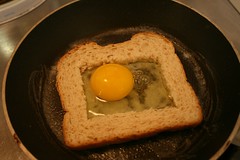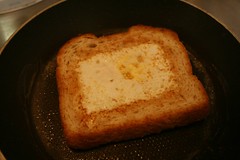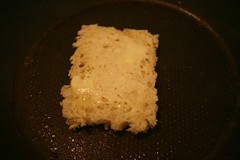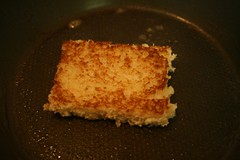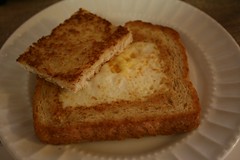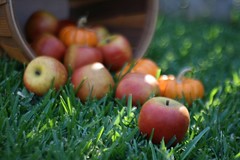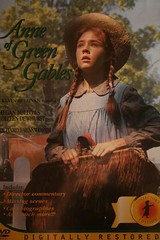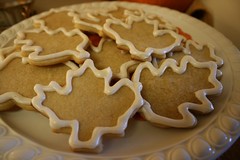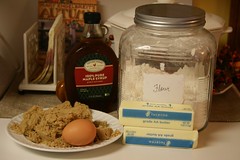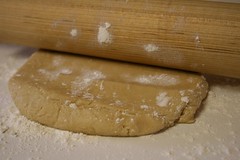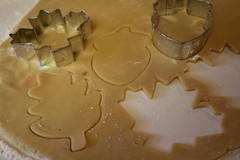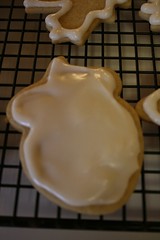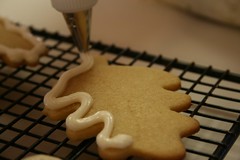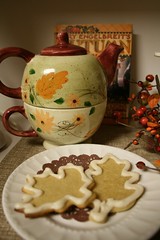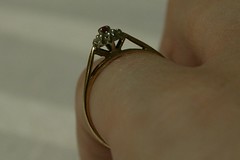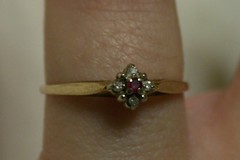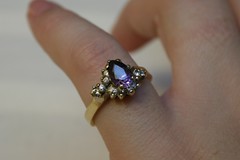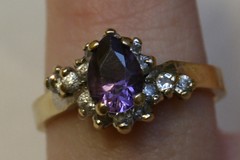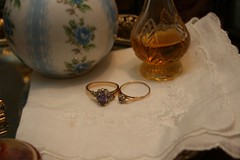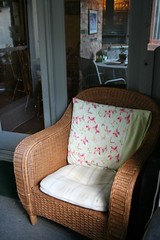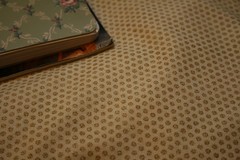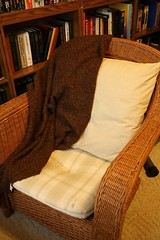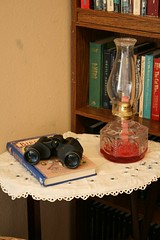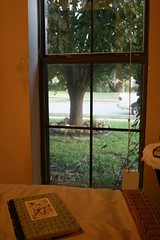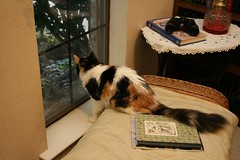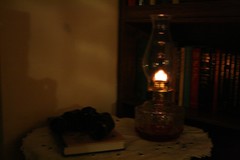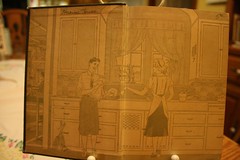
Here are the questions again, along with the answers. My personal comments are in blue.
Question: When should the butter be put on the table and the water poured, at the breakfast table?
Answer: The butter and water should be put on the table just before the meal is served. It is especially necessary to wait until the last minute in warm weather. Glasses should be filled three-quarters full. And to think I've been filling them two-thirds full this whole time. ;0) Btw, does anyone drink water with breakfast?
Question: Suppose you accidentally spilled a cup of cocoa at the table. What would you do? What would you say?
Answer: There is an old saying which goes, "The least said, the easiest mended." This advice should be followed after an accident at the table. Of course, you should say some such things as "I am so sorry. Please excuse my awkwardness." If you express your regret briefly and sincerely (for who is not disturbed when an accident occurs in the presence of those before whom he would like to appear well?), you are doing the best you can under the circumstances. To continue expressing your regret in a profuse manner is unpleasant to the other guests at the table.
Question: What is the most important step in dishwashing?
Answer: A class in college studied dishwashing! Does dishwashing seem a strange subject for a college class to study? Their study of dishwashing was very valuable. The class found the sickness, such as influenza, could often be traced to wrong methods of dishwashing. It was found that dishes must be rinsed, or better yet, placed in boiling or scalding water, to make them safe. Boiling water? Ouch! Let's hope they wore some heavy duty gloves!
Question: How should crackers and breads be eaten with soup?
Answer: It is not good manners to break up crackers and drop them in the soup. Crackers should be eaten somewhat as bread. Break off a bit at a time and eat the small piece without dipping it in the soup. Awww....that's no fun! I don't know if I can eat tomato soup without broken up Saltine crackers on top!
Question: How thick should vegetables parings be?
Answer: Most vegetables have thin skins. It is wasteful to pare such vegetables thick. Fall or winter potatoes should be pared as thin as possible. New potatoes and carrots have such a thin skin that they should be scraped. Turnips and rutabagas have a very thick tough skin. Contrary to the rule of paring vegetables, these vegetables should be pared thick so as to remove the thick woody skin. It sounds like we can put away our kitchen rulers! ;0)
Question: Should pie be served for luncheon or for dinner?
Answer: Pie is often served at the close of dinner. If the dinner has been a hearty one, the average two-crust pie is not a wise choice. Good pie crust contains much fat. It is a rich food, and is not suitable for the dessert of an elaborate dinner. It is better to serve pie at the close of a lighter meal, i.e., as the dessert of luncheon or supper. Pie is my very favorite kind of dessert. I see no problem with skipping the hearty dinner and just eating the pie!
Question: What consideration should be shown the meat carver?
Answer: It is not always easy to carve meat. It is especially difficult to carve a roast turkey or chicken. Often these meats are served when guests are present. If the guests watch every move of the carver, he is apt to become embarrassed or uncomfortable. Under such circumstances the carver usually does not do so well as when he works unnoticed. The guest should pay no attention to the carving. Some topic of conversation should be started by the hostess or one of the guests so as to engage the attention of the other guests. I don't know about you, but since the holidays are coming soon, I'm going to be thinking of appropriate conversation topics so as not to embarrass Phillip. Hehehe.
Several of you got the right answers so, congratulations! I enjoyed sharing this fun book with you!


